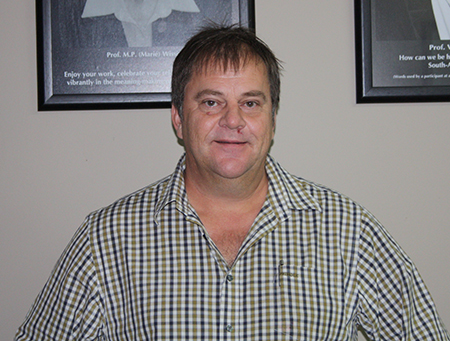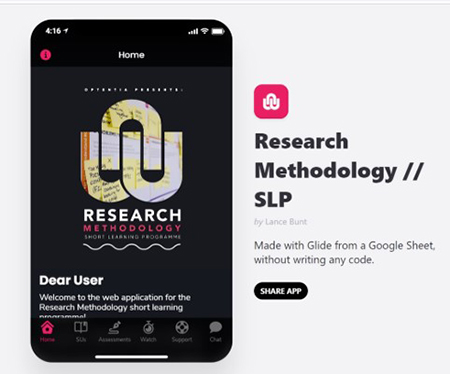The thought of conducting research can be intimidating for young researchers. Confidence comes with knowing you have the skills and insight to do justice to any research project you tackle. These skills can now be acquired online, through the North-West University’s (NWU’s) newly approved online version of the short learning programme (SLP) in research design.
“The SLP we created is an online learning programme that engages students and enables them to engage the online platform via a computer or mobile device,” says Prof Ian Rothmann, director of the Optentia research focus area, which has been presenting the contact version of the programme since 2014.
The online version was created between May and December 2020, when a team of 31 people from Optentia pooled their skills to develop it.
The art of creating an online programme
There were several design considerations during the process of creating an online SLP. The first was metacognition, an understanding of which is vital in helping students to understand the human learning process. Students should identify what their strengths are and identify gaps, not weaknesses.
The second design consideration was neuroplasticity. “When students understand that the brain continuously changes throughout a lifetime, it is transformative,” says Prof Kristen Betts from Drexel University, who collaborated with Optentia on the design of the SLP.
“Students should see every assignment as having the intention of helping them to develop new connections, building upon prior learning to help them to transfer their learning in terms of the real world.”
The third design consideration was universal design for learning (UDL), which is an educational framework based on research in the learning sciences. It guides the development of flexible learning environments and spaces that can accommodate individual learning differences.
What, why and how?
UDL consist of three elements. The first is a recognition network, or the “what”, which facilitates multiple means of the representation to give students various ways of acquiring information and knowledge.
The affective network represents the “why”, through which multiple means of engagement are used to tap into students’ interests, challenge them appropriately and motivate them to learn. This engagement includes three types: instructor-to-student engagement, student-to-content engagement, and student-to-student engagement.
The third network is the strategic network and is the “how”, providing students with multiple means of expression to enable them to demonstrate what they know.
What the programme is about
Prof Rothmann says the SLP consists of 10 study units that guide postgraduate students and young researchers through the process of developing the skills and insight to become confident researchers:
Study Unit 1: Introduction to research, epistemology, philosophy of science and scientific paradigms, research planning, design and process, and clarifying basic concepts of research.
Study Unit 2: Research entities at universities, multidisciplinary research and phenomenon-based learning, philosophy of a research entity, and research questions and developing research topics.
Study Unit 3: The research process at the NWU, from interested applicant student to graduate, the academic research process, and psychological readiness to engage with master’s-degree and PhD studies.
Study Unit 4: Characteristics of good research, the cyclical nature of research, acquiring research language and the research proposal.
Study Unit 5: Literature review and overview, accessing information, processing information (including academic writing), producing information and referencing (APA and Harvard styles).
Study Unit 6: Basic introduction to qualitative research, the qualitative researcher as research instrument, conceptual (methodological) coherence, sampling in qualitative research, data collection and analysis, and trustworthiness in qualitative research.
Study Unit 7: Introduction to quantitative designs, experimental designs, quantitative purpose statement and research question, cross-sectional and longitudinal designs, introduction to statistics, and questionnaire construction and validation.
Study Unit 8: Introduction to mixed-methods research, understanding terminology, reasons for mixed-methods research and theoretical framework. This includes a socio-ecological model, characteristics of mixed-methods research, worldviews/paradigms relevant to mixed-methods research, key decisions in selecting the appropriate mix of research methods, how to formulate research questions in mixed-methods research, types of mixed-methods research, and data analysis.
Study Unit 9: Quantitative data analysis with JASP, Mplus, R/Rstudio, Excel and Eviews.
Study Unit 10: Publish your research in a journal and communicate your research with the appropriate impact.
How to register
Optentia presents the SLP three times a year and anyone interested in registering for it can contact Lynn Booysen at lynn.booysen@nwu.ac.za or 016 910 3410. You can also visit Optentia’s website.
You can also watch a video on the development of this SLP, or enjoy the webinar Optentia presented to launch the online SLP this year.

Prof Ian Rothman, director of the Optentia research focus area.

The front page of the web application for the Research Methodology short learning programme.
